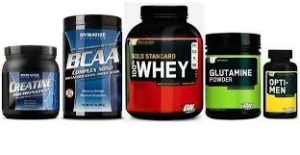 With Christmas and New Year celebrations still swilling around our waistlines, keeping our body fat under control is enough of a challenge. But for a number of the more dangerous amateur athletes, supplements are exactly what believe takes them into the following level. So are they safe and what do you do effect have they got on your bodies?
With Christmas and New Year celebrations still swilling around our waistlines, keeping our body fat under control is enough of a challenge. But for a number of the more dangerous amateur athletes, supplements are exactly what believe takes them into the following level. So are they safe and what do you do effect have they got on your bodies?
Protein Shakes / An extremely high Protein Diet
Recent low-carb diets made carbohydrates the modern-day evil. But as a high protein diet can help with specific weight management goals, long-term adherence can build risks of nutritional imbalance as high protein diets can be short of fibre thus impeding digestion. A lack of vegetables, fruit, legumes and whole grains could mean an absence of antioxidants, vitamins and minerals, weakening the immune system.
As protein is excreted by the liver and kidneys problems can happen during these organs along with dehydration. A medical condition called ‘Ketosis’ can happen meaning calcium is drawn from the originial and bones possibly causing osteoporosis. Although protein rich, red meat is at the top in bad fats thus increasing likelihood of heart disease, obesity, high cholesterol and very high systolic pressure. A high protein diet could also impact serotonin levels which affect an individual’s mood. These risks would basically really become a factor during the long-term and people suffering known liver or kidney problems.
But, provided that sufficient water and vitamin C are taken on board for most people, a top protein diet shouldn’t pose problems in the short to medium term. Longer term, a balanced diet should definitely be followed.
Creatine
Creatine is almost always cited by athletes as helping to bulk up our bodies by increasing how much fat-free mass. Without wanting to get too technical, as increases in muscular creatine produces increases in muscular creatine phosphate, stores of creatine phosphate inside the muscles increase which can then delay the onset of fatigue thus extending peak performance. This assists improve short-term bursts of power so explosive, power-based sports for instance sprinting, jumping and cycling may benefit. The delayed lactic acid boost would benefit endurance athletes.
Studies have proven that use of creatine when things happen in a certain manner will produce an rise in fat-free mass. So this will enable you to to build muscle however you really should be at the right stage as part of your training plan to work with this then it’s important to know just how much to accept and just how yearn for.
In term of risks, short and medium-term use have proven no adverse affects however concerns over long-term using of strain on the kidneys due to the high nitrogen content hasn’t been proven after studies. Caution should be taken for anyone with kidney problem history however. Their counterpart effect is water retention causing unwanted weight gain. A possible gender-based ‘side effect’ could be that fat-free mass increase is lower in women than men ensuring that may affect the results a female is expecting.
Caffeine
Caffeine boosts the utility of free fatty acids as a fuel source instead of glycogen, so this will benefit your endurance. Caffeine also enhances the release of calcium needed for muscular contraction and is a stimulant towards the nervous system so this can help your strength conditioning.
Complications involved with caffeine consumption are hypertension, diuresis (increased urination), arrhythmias (pulse rhythm deviation), insomnia, upset stomach, anxiety, delirium, impaired memory and hallucinations. By taking caffeine approximately an hour before exertion the height concentration values in blood will certainly be hit. And if you don’t like coffee, you can find caffeine tablets instead which can actually produce superior results. But remember, It is vital to drink plenty of water if taking caffeine for being supplement to your current training.
Sports drinks
More like a fluid and mineral replacement compared to a supplement. Electrolytes are ions obtainable from the body who have the abilities to conduct electricity. The most ideal are sodium, potassium, magnesium and calcium and are also necessary for organ and cell function especially the brain, body and muscles.
Sweat contains a great deal of electrolytes, especially sodium. Exercise leans induce sweat therefore as well as rehydrating to interchange fluid levels, these electrolytes lost through sweat also need replacing which is why sports drinks contain them. A home-made edition of these drinks could be made by mixing equal quantities of fruit juice and water and adding a couple of pinches of salt.
So will they work?
Supplements are exactly that and are generally not substitutes to produce a well-balanced diet, proper hydration, a lot of rest and hard work! But if you are training for a specific goal and be aware of which supplements you want, how much to accept and as taking them, there is evidence these supplements can undergo significant change performance and results and just simply might give you the extra edge you are browsing for.

Leave a Reply